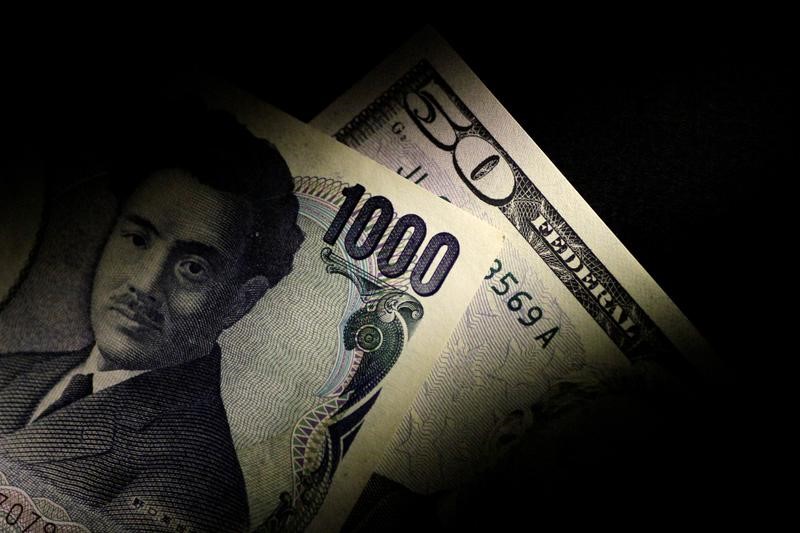
At 04:10 ET (09:10 GMT), the Dollar Index, which tracks the greenback against a basket of six other currencies, traded 0.2% lower at 105.445, having climbed well over 106 last week.
The dollar has edged lower ahead of the release of first-quarter U.S. gross domestic product data later in the session, which will show just how resilient the U.S. economy was in the beginning of 2024.
The Commerce Department’s reading of gross domestic product is seen slowing to 2.5% in the first three months of the year from 3.4% in the fourth quarter, a drop in growth but an indication that the U.S. remains more robust than other advanced economies despite a period of sticky inflation and elevated interest rates.
More closely watched will be PCE price index data – the Fed’s preferred inflation gauge – which is due on Friday.
Despite the recent slippage, the dollar will remain the king of the currency playground until U.S. “economic exceptionalism” cools, according to Macquarie, in Wednesday note.
“Until the rest of the world begins to surpass the U.S., and until the Fed sets forth a clearer horizon for the start of policy easing, we continue to believe that it will be difficult for FX to rally against the USD,” Macquarie said.
In Europe, EUR/USD rose 0.3% to 1.0726, gaining after the forward-looking GfK German consumer climate showed a small improvement in May, coming in at -24.2, an improvement from the upwardly-revised -27.3 seen the prior month.
This follows on from Wednesday’s rise in Germany’s Ifo Institute’s survey on business conditions and expectations for April, suggesting that the eurozone’s largest economy is slowly recovering.
GBP/USD rose 0.5% to 1.2521, with confidence growing after British businesses recorded their fastest growth in activity in nearly a year earlier this week.
Senior BoE officials – Governor Andrew Bailey and Deputy Governor Dave Ramsden – have recently said British inflation was falling in line with the central bank’s predictions and the risk of it getting stuck too high had receded, setting the stage for a rate cut.
That said, inflation was above the BoE’s 2.0% target in March, coming in at 3.2%.
In Asia, USD/JPY rose 0.2% to 155.67, with the pair climbing to its highest level since 1990, above the widely-watched 155 level.
The yen’s slide against the dollar has revived expectations of currency intervention, with Japanese Finance Minister Shunichi Suzuki, along with other policymakers, stating that they are watching currency moves closely and will respond as needed.
The Bank of Japan concludes its latest policy-setting meeting on Friday, and is expected to keep rates unchanged after a historic hike in March.
USD/CNY edged higher to 7.2473, remaining close to five-month highs, amid a series of strong fixes by the People’s Bank of China.
AUD/USD rose 0.5% to 0.6529, buoyed by receding bets of rate cuts from the Reserve Bank of Australia this year after the country’s consumer price inflation slowed less than expected in the first quarter.
To read the full article, Click Here
